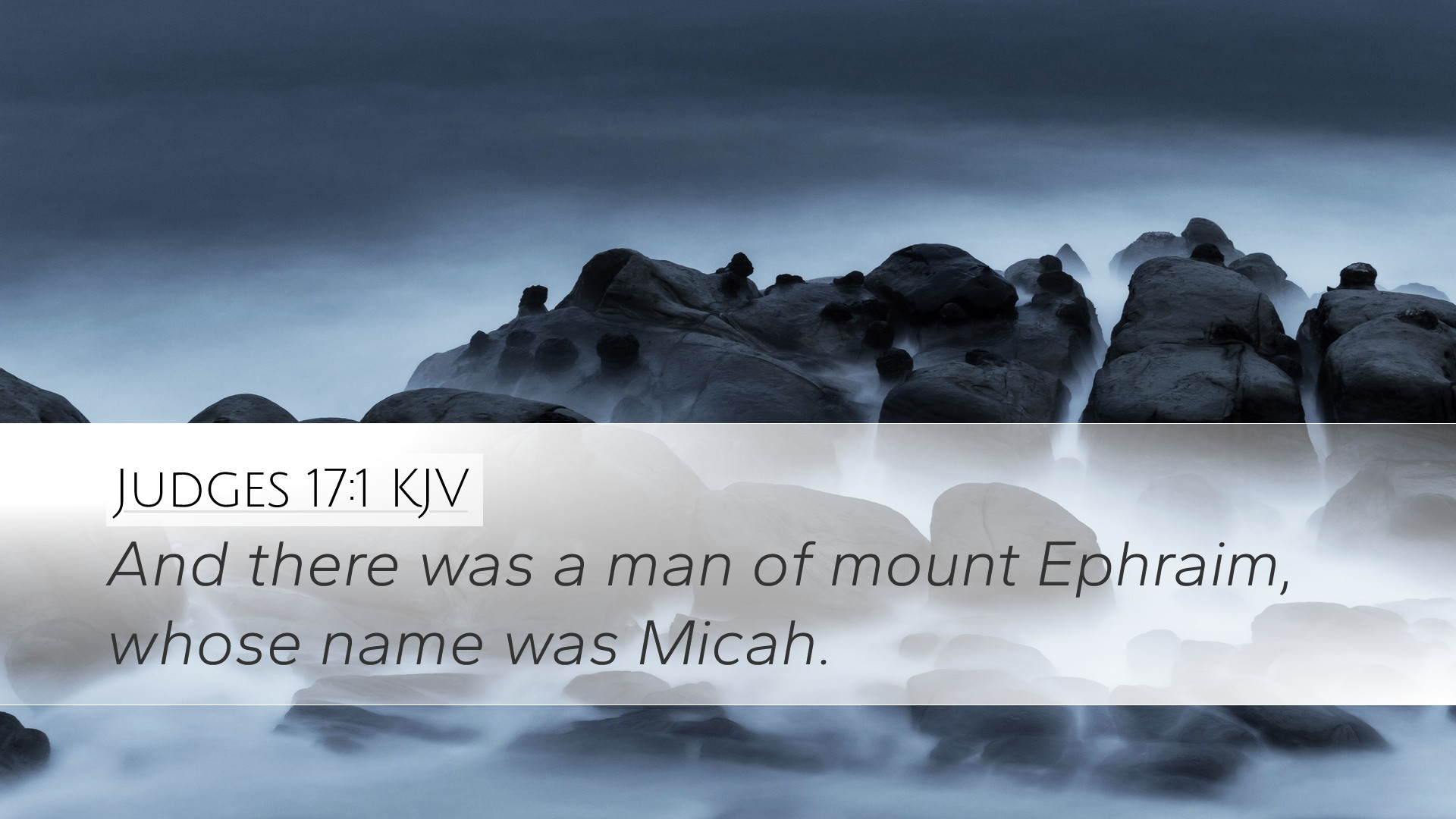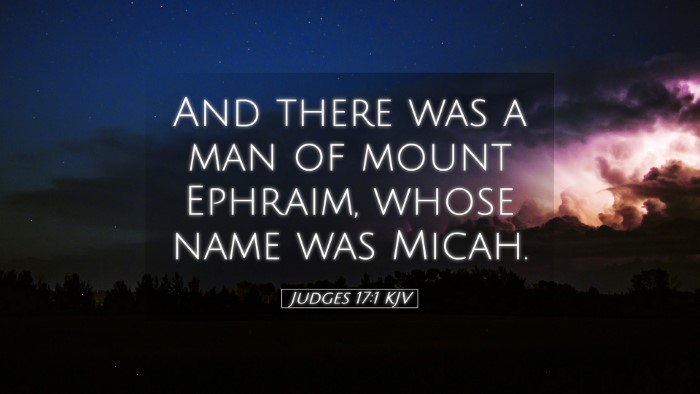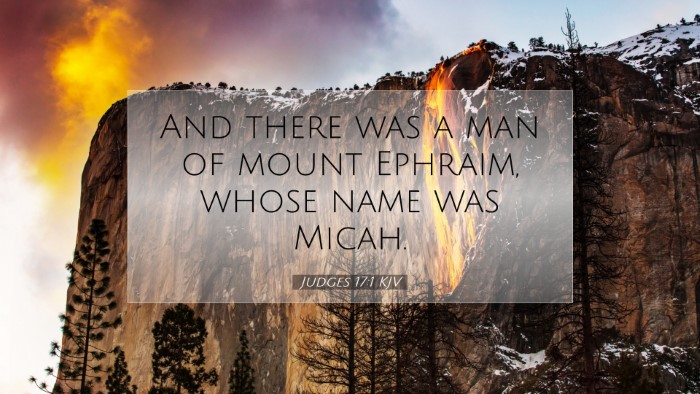Old Testament
Genesis Exodus Leviticus Numbers Deuteronomy Joshua Judges Ruth 1 Samuel 2 Samuel 1 Kings 2 Kings 1 Chronicles 2 Chronicles Ezra Nehemiah Esther Job Psalms Proverbs Ecclesiastes Song of Solomon Isaiah Jeremiah Lamentations Ezekiel Daniel Hosea Joel Amos Obadiah Jonah Micah Nahum Habakkuk Zephaniah Haggai Zechariah MalachiJudges 17:1
Judges 17:1 KJV
And there was a man of mount Ephraim, whose name was Micah.
Judges 17:1 Bible Commentary
Commentary on Judges 17:1
Verse Text: "There was a man of mount Ephraim, whose name was Micah."
Introduction
The book of Judges presents a troubling period in Israel's history, characterized by moral decay, political chaos, and spiritual apathy. The account of Micah serves as a poignant illustration of the consequences of forsaking divine guidance in favor of personal desire. This commentary on Judges 17:1 synthesizes insights from prominent public domain theologians to illuminate the text's multifaceted meanings.
Contextual Background
The context of Judges 17 is crucial for understanding the significance of Micah's actions. Following the death of Joshua, Israel struggled to maintain their covenant with God, leading to periods of extreme disobedience and chaos. This narrative introduces us to an individual living in the hill country of Ephraim, whose decisions epitomize the spiritual declension of Israel.
Micah's Identity
Matthew Henry notes that the mention of Micah as a man of "mount Ephraim" reveals both his geographical and personal significance. Ephraim was a prominent tribe in Israel, and Micah’s location signifies that even in a respected region, idolatry and moral failings can persist. Micah's very name means "Who is like Yahweh?", which might ironically contrast with his actions later in the story.
Spiritual Implications
Albert Barnes posits that Micah's story serves as a microcosm of the larger spiritual decline of Israel. While the people were supposed to be Yahweh’s chosen, they gravitated towards self-made religion and personal ethics, leading to a complete breakdown of societal norms. The introduction of Micah opens the gateway to examining how personal desire can overshadow adherence to divine law.
Character Analysis of Micah
As the narrative unfolds, Micah's character becomes central to understanding the deterioration of Israel's faith. His actions speak to a deeper human tendency to create godliness based on personal preference rather than divine mandate.
Idolatry and Personal Faith
Adam Clarke emphasizes that Micah's transition from an earnest seeker of truth to a promoter of idolatry outlines a tragic moral trajectory. Initially, he claims to worship Yahweh, but he soon constructs an idol, showcasing the conflict between genuine faith and personal invention. This duality reflects the broader sentiment of Israel at the time, where personal interpretations of religiosity flourished.
The Search for Spirituality
Micah’s quest for spiritual fulfillment illustrates a broader dilemma—his desire for assurance of God's presence leads him to create a system of worship founded on human terms rather than divine instruction. As Henry comments, “Instead of building his faith upon the foundation of the Word of God, he constructs it from his imagination.”
Lessons for Pastors and Theologians
The narrative of Judges 17:1 is rich with lessons relevant to contemporary ministry and theological reflection:
- Importance of Biblical Fidelity: The text calls pastors to anchor their teachings firmly in Scripture, avoiding the pitfalls of creating a "god" that aligns with personal ideologies or cultural trends.
- Warnings Against Syncretism: It serves as a warning against blending belief systems. The story of Micah unveils how easily individuals can stray from true worship into syncretism, a challenge still faced today.
- Addressing Spiritual Hunger: Micah represents those who seek spiritual satisfaction; there is a need for pastors to provide genuine encounters with God that nourish souls rather than leading them to artificial substitutes.
Conclusion
Judges 17:1 encapsulates a critical moment in the narrative of Israel and provides profound insights into the human condition's spiritual aspects. The insights from Matthew Henry, Albert Barnes, and Adam Clarke converge to reveal a cautionary tale about idolatry, spiritual authenticity, and the ongoing search for true worship. Pastors, students, and theologians are challenged to reflect on their personal and communal worship practices in light of Micah's narrative and to strive for a faith rooted in the enduring truth of God's Word, inviting a deeper relationship with the Creator who is indeed unmatched.


